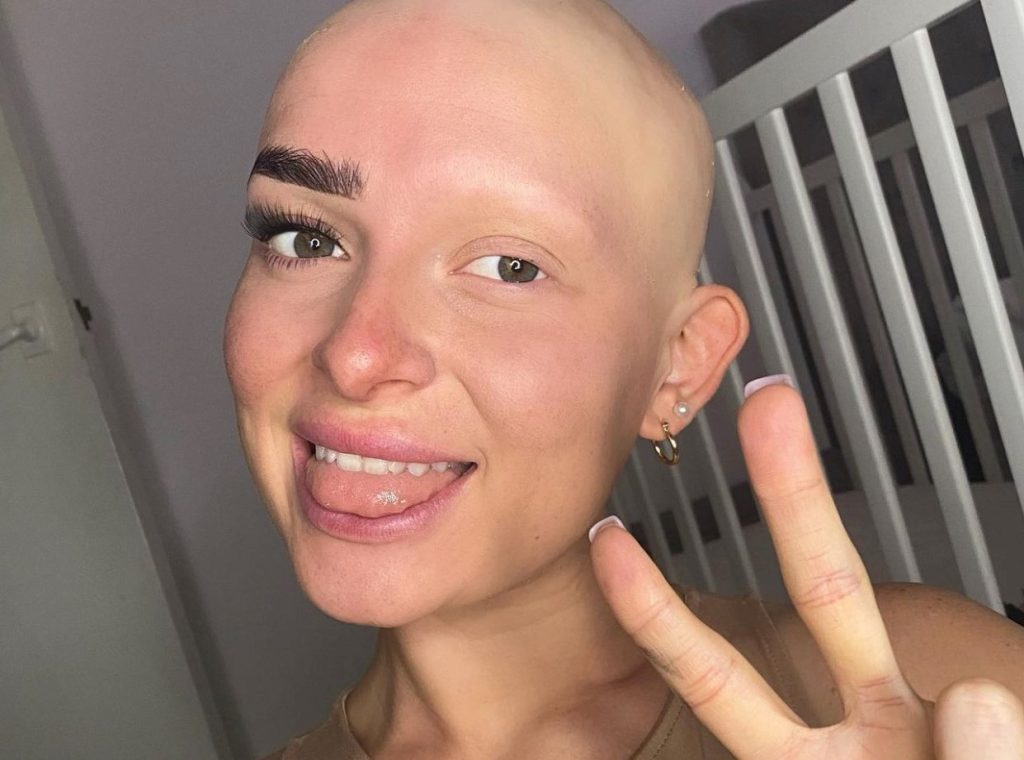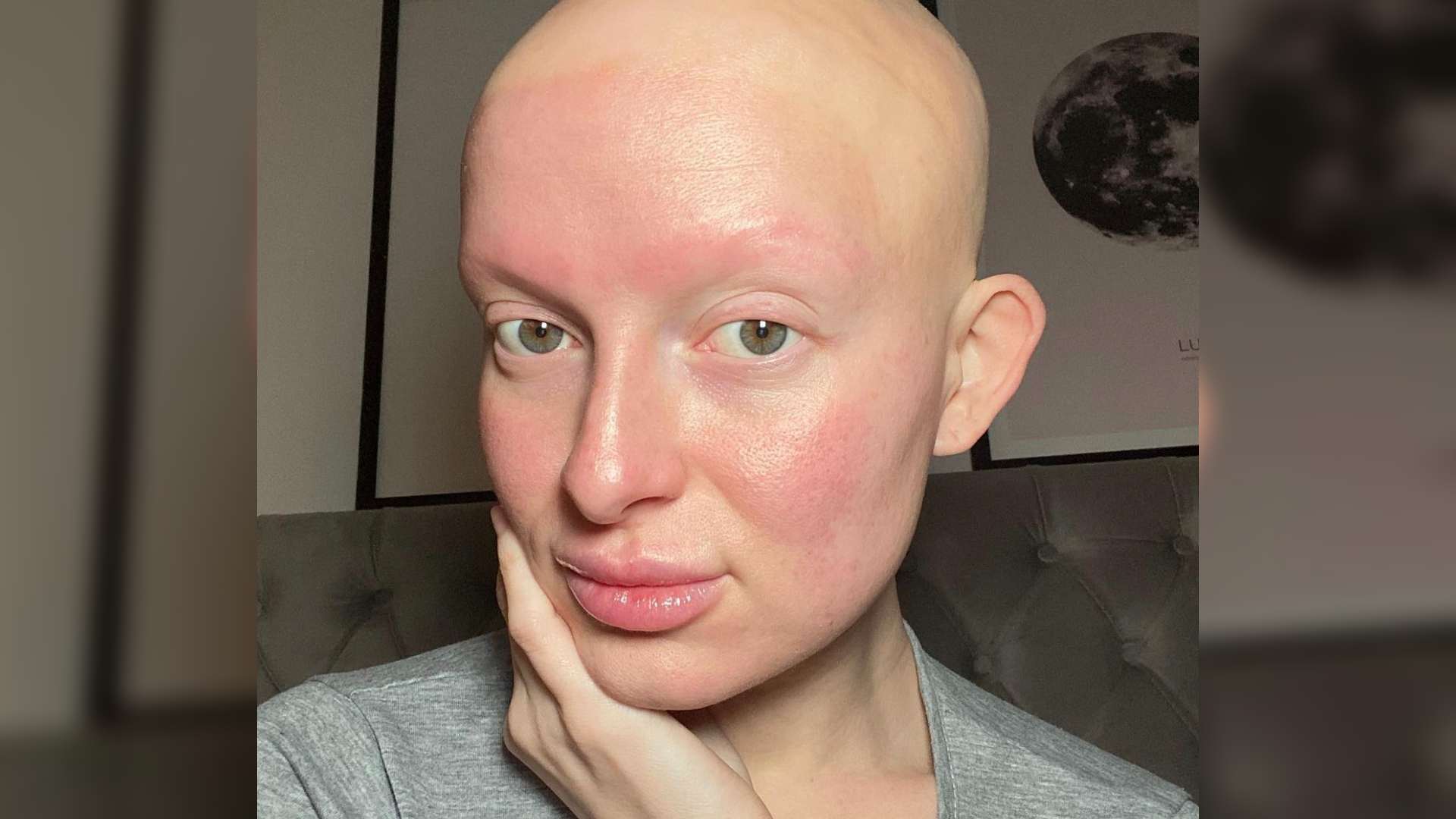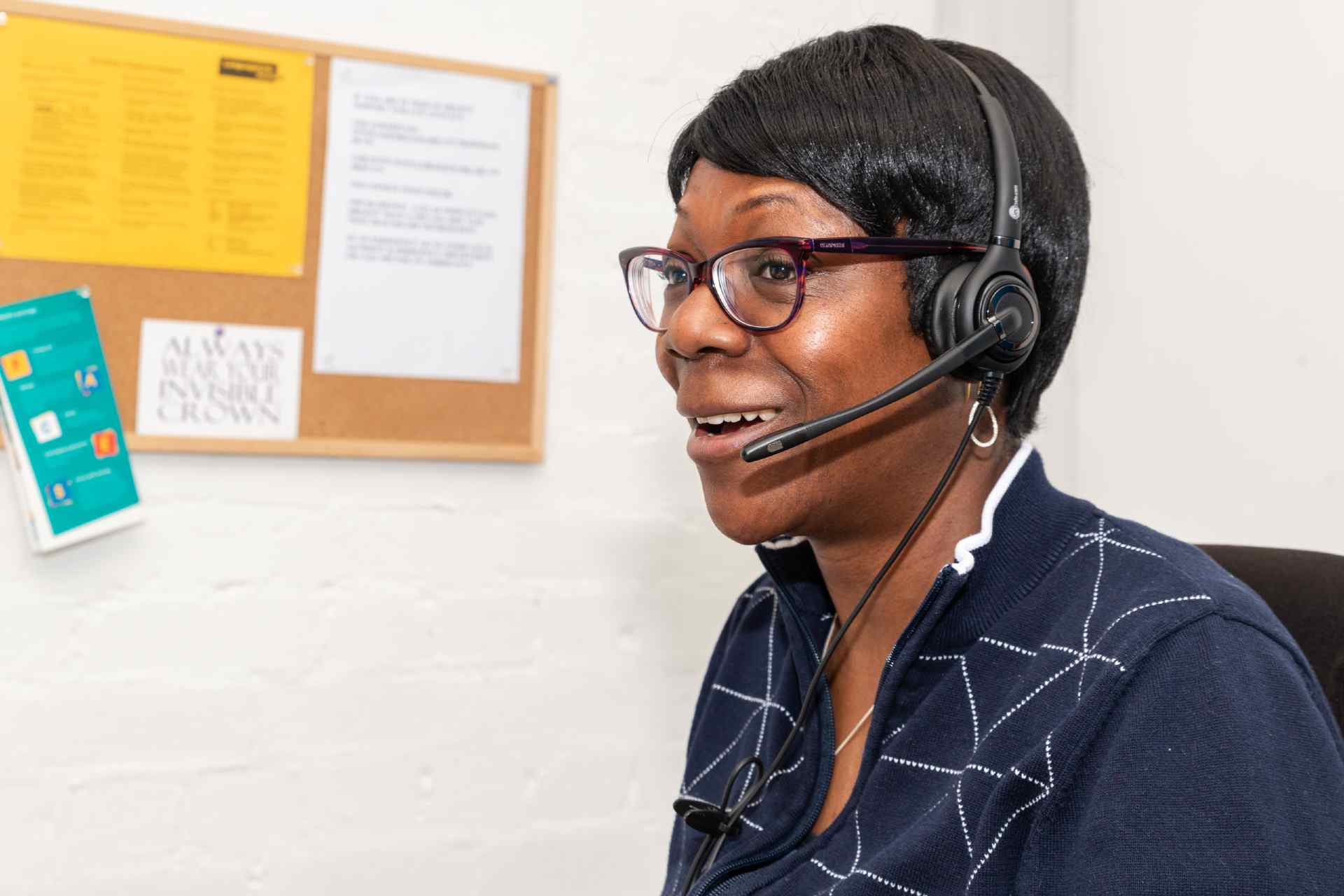My name is Jess and I developed alopecia universalis when I was 16 years old.
When I first noticed small bald patches forming, I tried to hide them with hair extensions, clipping them onto the fragile hair that remained, but this would fall out. Soon, these patches grew larger.
Witnessing my hair fall out all over my pillowcase, shower and brush everyday was really upsetting. I couldn’t even put my fingers through my hair without seeing clumps on my fingertips.
After an exhausting battle with medication that didn’t work, many doctors’ appointments and hospital appointments, I came to the realisation that my hair wasn’t going to stay. This resulted in me braving the shave. I lost all my hair in the space of a month.
I felt ugly, alien looking. This was a battle I felt I couldn’t face, and I ended up trying to take my own life. I was 16 with no hair, no confidence, severe anxiety, depression and in an abusive relationship where I was getting mocked and bullied daily.
Being different shows your unique experiences, including everything you have achieved so far. It’s a testament to your inner strength.
Thankfully, my family and friends pulled me through this stage of my life in one piece. They were by my side throughout my ups and downs, talking me through my demons and helping me financially with wigs, which I’m forever grateful for.
In 2014 I gave birth to my beautiful son. To this day, I always say that he saved my life. He gave me a purpose to live for and I wanted to show him that while I am different, I am also beautiful.
In 2019 I made my alopecia Instagram account to raise awareness of my condition. It now has an amazing following and has become a support system for me and for many other people. I shared my first bald appearance to the world with my followers, and now I provide tips and tricks on how to cope with the impacts of alopecia.
My goal is to keep raising awareness and helping others who feel the same way I did when I was 16. Most importantly, I want to show people that no matter what difference you have, you are beautiful.
My eldest son has asked me directly “why haven’t you got hair mummy”, which gave me the opportunity to explain the condition in a way he would understand. I said, “my body doesn’t like hair, it thinks it’s too beautiful without it”.
It’s so important to have a strong support system, whether that’s friends, family, work colleagues or a social media community. It makes those bad days feel less isolating. A problem shared is a problem halved is what my mum always said to me.
While social media has been a great way to meet people who understand my situation, some of my worst experiences have been online too. I’ve had comments and direct messages from people calling me alien, freak and using the “sick face” emoji. Although the good comments have always outweighed the bad, they still take a toll on your confidence.
I try not to let them get to me anymore. Once I realised that I didn’t want to hide from the world, my confidence grew. Going out without my wig has always been scary, due to the staring and comments I receive, but the online community I’ve found has proved to me that I’m not alone. If I want to wear wigs, I can, and there’s nothing wrong with that, but there’s also nothing wrong with me embracing my baldness either.

Jess now presents herself how she wants to
My children have helped with my self-acceptance. They’ve never looked at me differently and have been more curious about how I can change my hair colour so quickly rather than why I haven’t got any hair! My eldest son has asked me directly “why haven’t you got hair mummy”, which gave me the opportunity to explain the condition in a way he would understand. I said, “my body doesn’t like hair, it thinks it’s too beautiful without it”.
My advice to any parent with a visible difference is to bring your children along for the journey. Show them other people like yourself, both with the same condition and different ones. Explore questions and never be afraid of what they think about your appearance, as their love is unconditional.
If I could speak to my younger self, I’d tell her that no matter the obstacles you face, don’t be afraid. Look at the world and see that it’s beautiful with you in it, no matter how you look, feel or what you think of yourself. Being different shows your unique experiences, including everything you have achieved so far. It’s a testament to your inner strength.
If I want to wear wigs, I can, and there’s nothing wrong with that, but there’s also nothing wrong with me embracing my baldness either.
I’d love to see a shift in society’s beauty standards, so that young people don’t have to worry about not being accepted because of their visible difference. Steps forward have been taken with more diverse Barbies and dolls on the shelves and inclusive children’s books, but more is needed to truly break down barriers and ensure there is a lot less pressure to feel “perfect”.
My advice for anyone with a visible difference is to reassure yourself. You are more than your condition, you are YOU. Distract yourself from your thoughts by diving into things you enjoy. Talk to people about how you feel and find others who understand what you’re going through. People want to listen, care for and support you, so never feel like you’re a burden – you are so loved.

